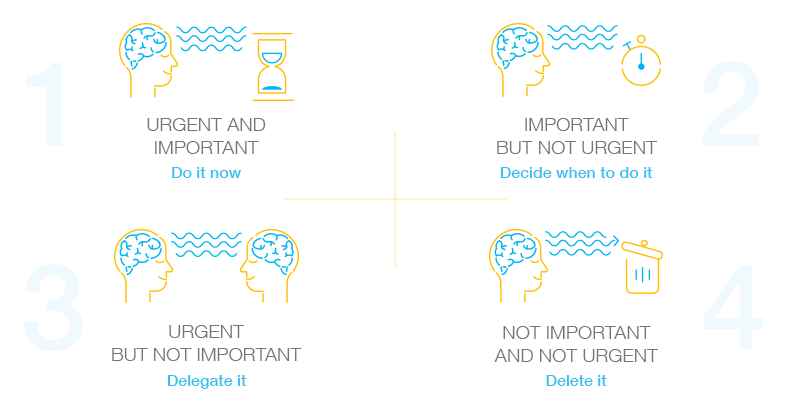We live in a culture that expects us to be as efficient and productive as possible. Since there are only so many hours in a day, and way too many things to accomplish, the most common solution used by professionals all over the world is cutting back on sleep. Indeed, giving up one third of our time to inactivity seems counterproductive. However, not doing that is what makes millions of people lose or weaken their ability to stay productive and eventually turns into sleep deprivation. This article is dedicated to exploring this correlation between sleep and productivity.

Alice Calin' Post
Prioritizing your work life might not seem very easy, when everything you have to do feels important. Taking things as they come, without having a strategy, usually throws you into chaos, where you running a race against time day after day. Eventually, this continuous fight is likely to lead to burnout and dramatically affect your life.

Both at work and in everyday y life, each generation has something unique to offer. However, the culture gap between generations can make things uncomfortable at times, leaving people feeling less welcome. So how do we create a work culture that brings people together instead of tearing them apart? This is the core of my article, so I encourage you to read forward and find out.

Work-related stress is something that we all experience in different degrees and for different reasons. According to HSE statistics
New York Times Bestselling author Sheryl Sandberg defines leadership in the most creative and truthful way. “Leadership”, says Sandberg, “is about making others better as a result of your presence and making sure that impact lasts in your absence.”
According to Sandberg, a great leader becomes such an inspiration for others that the teachings they spread will continue to have a lasting impact, even after they’re gone. Guiding employees in a way that transcends job duties and rigid responsibilities stands at the core of great leadership.

Innovation and communication are two intertwined concepts. Innovation cannot happen without communication. Communication without innovation would be severely impaired. Just think of all the technological innovations that led to the communication means we use today. From letters and the telegraph to mobile phones and the internet.

Brainstorming is key to teamwork. You can’t make team decisions without brainstorming ideas first. Also, in the absence of brainstorming sessions, solving problems would be a lot less effective. Yet, effective brainstorming is not an easy thing to do. That’s why I want to help you. Here are 8 different techniques that modern entrepreneurs and their prolific teams use to make your brainstorming sessions more effective.

Fear of failure is what holds most people back from trying new things. Ironically, fear is also a guaranteed way to fail – refraining from even trying. Because when you give it a go and try something new, two outcomes become possible. You either achieve the success you were looking for, or you fail and learn something from it, increasing your chances to succeed next time. So, let’s discuss some possible lessons that you can learn from failure, and how the CEOs of some of the most powerful companies relate to it.

Work changes occur all the time, in every company committed to making progress. However, one of the biggest obstacles that managers need to overcome along the way is people’s resistance to change. Managers often take it as a given, thinking it’s human nature. Even though there is some truth in that, it’s in their power to implement change in a way that would make it easier for everyone to get on board.











